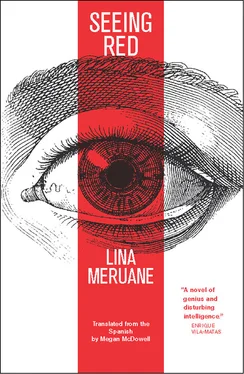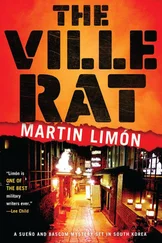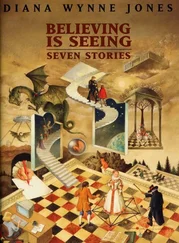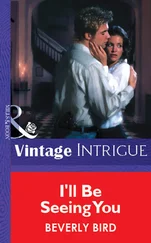Lina Meruane - Seeing Red
Здесь есть возможность читать онлайн «Lina Meruane - Seeing Red» весь текст электронной книги совершенно бесплатно (целиком полную версию без сокращений). В некоторых случаях можно слушать аудио, скачать через торрент в формате fb2 и присутствует краткое содержание. Год выпуска: 2016, Издательство: Deep Vellum Publishing, Жанр: Современная проза, на английском языке. Описание произведения, (предисловие) а так же отзывы посетителей доступны на портале библиотеки ЛибКат.
- Название:Seeing Red
- Автор:
- Издательство:Deep Vellum Publishing
- Жанр:
- Год:2016
- ISBN:нет данных
- Рейтинг книги:3 / 5. Голосов: 1
-
Избранное:Добавить в избранное
- Отзывы:
-
Ваша оценка:
- 60
- 1
- 2
- 3
- 4
- 5
Seeing Red: краткое содержание, описание и аннотация
Предлагаем к чтению аннотацию, описание, краткое содержание или предисловие (зависит от того, что написал сам автор книги «Seeing Red»). Если вы не нашли необходимую информацию о книге — напишите в комментариях, мы постараемся отыскать её.
This powerful, profound autobiographical novel describes a young Chilean writer recently relocated to New York for doctoral work who suffers a stroke, leaving her blind and increasingly dependent on those closest to her. Fiction and autobiography intertwine in an intense, visceral, and caustic novel about the relation between the body, illness, science, and human relationships.
Lina Meruane
Seeing Red — читать онлайн бесплатно полную книгу (весь текст) целиком
Ниже представлен текст книги, разбитый по страницам. Система сохранения места последней прочитанной страницы, позволяет с удобством читать онлайн бесплатно книгу «Seeing Red», без необходимости каждый раз заново искать на чём Вы остановились. Поставьте закладку, и сможете в любой момент перейти на страницу, на которой закончили чтение.
Интервал:
Закладка:
double effect
Locked in the bathroom I take off my patches: first one and then the other, and third, I open my eyes. By now the stitches of black thread have broken and fallen out, according to their mysterious design. No longer are there only halos of strident light. By now the bubbles have started to shrink, leaving the edges to my true peripheral vision splashed with tenuous and imprecise colors, residues of a rainbow that will never again have the same brilliance. In the center, though, the gas is a lens, a powerful magnifying lens through which the lines of my hand grow and enlarge when I hold it close, or the tiny flowers pressed into the soap dish, the directions on the aspirin bottle. I have the impression I’m hallucinating. This seems like seeing, but it’s much more than seeing, it’s having a true bionic eye. Having lost the habit of using my eyes, I feel around in the drawer for a hand mirror. What I see in it, held two centimeters in front of my face, are the holes of my nose and above them two swollen, wounded balls, two open and unfathomable pupils, and if I move away I see my two eyes become four. I inhale and move further away, I check what each eye sees separately and I’m worried when I find that while the right one produces exaggerated and pristine images, the left one perceives things somewhat distorted. I try them together: I see duplicated objects. I think that double as I may be seeing, seeing is the good news; but I see badly, and that’s the bad. Then I see two tears on the surface of my mirror, mine and its own carbon copy. Something went wrong, I let Ignacio know when through the keyhole I hear him coming back with a carton of eggs and a box of milk. In this eye, I tell him, some-thing’s-wrong, measuring and separating each syllable, there’s a problem here, maybe two. What problem, how do you know? he stammers, knowing what this could mean: more operations or the final operation. I see badly and I see double. Double, babbles Ignacio with a dry mouth, confused and sick of surprises but also startled that I could even know I saw badly. Couldn’t you be imagining it? (How to explain this to you, who never lived through losing your sight and then seeing again, each eye on its own.) Explanations are too much. My body knows with irrefutable certainty that this is worse than bad. Worse than the aftereffects of the blinding laser Lekz used to gradually burn the inside of my eye over the years. Worse than the swelling of the soft tissues that kept me from reading after his procedures. Worse than the possible tears from the pincers in the operating room, than the tight scabs on my retinas, than the cataracts when the helium finally disappears. I renounce science and its possible explanations. This is an eye giving up, a limping eye, one eye or two that are irreversibly sick. And I let some furious and acid tears fall, and I punish them, my damned eyes, leaving them at the mercy of my hands that peck at them, dig into them, press on them and dry them recklessly. Ignacio tries in vain to stop me. I lift my chin and I lift my eyelids. I see his two big, terrified bulbs that suddenly become four blurry eyes. (So many eyes, you have more than enough, four eyes with four lenses for myopia.) Let go of me, I tell him harshly, we don’t need to play eye doctor, there’s no way to win at that game. And as if the devil were listening and wanted prove me right, when I turned my indignant head I slammed it into the door. A violent blow against the handle. A dry and resounding impact that has a devastating effect. Blood, again, in my eye. A fine thread of blood that comes from I don’t know where. Another double effect, another copy of what happened before, it’s all happening again but this time I start to scream, to cry out and not from pain. Ignacio yells and shouts back at me, what happened? Where did you hit yourself? I have my eyes wide open, I’m watching as the eye watches its thread of blood, looking at everything without ceasing my cries: I’m bleeding I’m bleeding again. But you can’t be bleeding, he said, tongue-tied and flustered, you can’t bleed anymore, they removed those veins. Then I shout louder, I shout all the shouts I hadn’t shouted when I should have. I see red again, Ignacio, I’m seeing blood with my own eyes. (I want to yank out yours, stick them inside mine so you can see the blood. Ignacio runs toward the bedroom to dial Lekz’s number. He asks to talk to Doris: yes, Doris, I hear him say, skipping over the greeting, yes Doris, we know Lekz doesn’t see patients on the last Friday of the month, we know that’s his day off. ¡Que te calles! And though Doris speaks nothing but English, she understands in the universal language of hysteria that this is a moment for silence. I hear Ignacio give a resonant grunt and then, with his professorial diplomacy, modulating every consonant, every learnedly British syllable, breathing deeply for an instant to recover his tone, please, Doris, put me in touch with Lekz. And he turns to me, standing in the doorway, clutching at myself, and he tells me, panting, get dressed right now, we’re going.
setbacks
We raise our arms in the street as if asking for help, but what stops in front of us is a yellow car that takes off like an autumn gale, wildly crossing the city on the highway. Ignacio hands the driver some warm and crinkly bills and we storm in and sit down. Ignacio notes right away that the clientele today is different; Fridays at noon are when they schedule operations with the cataract specialist. They’re all patched like me — because I’ve put my patches back on — but they hold their heads high and proud like fighting cocks. I hear a well-known clucking coming closer. It’s Doris, who kneels down beside me and brings her greasy lips close to my ear to announce: we have a setback. Yes, I repeat, we do, or more like I do. Doris nods and asks if they’ve contacted me as well. Who are they? The company! What company? I say gloomily; I certainly want no company other than Ignacio’s. Doris, who doesn’t know how to attend to more than one office problem at a time, sits ruminating for a second, confused by my confusion, her gaze fixed on some documents until the mystery is resolved and she finds herself with the need to clarify that, right now, this isn’t about me. But for some time now everything has seemed to be about me. But no, says Doris again, forget about yourself and your eyes for two minutes. Doris wants to talk to me, but I feel like there’s no more room inside me, not for any more air or blood or any more bureaucracy, and I’m going to explode while she talks about the damned insurance company. They don’t want to pay for the operation. My operation, I say to myself without contradicting her, but noting that once again we are talking about my body. The company, Doris continues with a brittle air, approved an operation that wasn’t the one you ended up having. Things got complicated in the operating room. Oh, really? I say just to say something, trying to reroute my thoughts toward some zone of my existence that doesn’t entail complication, but I can’t find any. Yes, says Doris, unable to bear the weight of her own body, slowly getting up and sitting on a chair next to us. Yes, she says, the company determined that your tests don’t contain conclusive evidence of any defect or lesion or visual anomaly. And since I’m no longer answering, she is the one who asks the usual rhetorical questions and then responds to them. What did they want? she exclaims, a blind woman with a cane and a guide dog to confirm the operation was absolutely unavoidable? My operation, I think in secret, what would it cost her to say it’s mine, just like my tests, my life, my Ignacio. Ignacio stays silent, determined to not get up from the chair again, and the two of us follow his example, all three of us silent, all three of us glum, our legs crossed, each stringing together various ideas around that millionaire figure that could be for nothing, that the insurance is refusing to pay. But the battle-hardened secretary can’t bear her silence for long, and she abandons it to tell me how they’re some real good-for-nothings, and it’s not the first time they’ve done this to us. We’ll send them the video of the operation ( my operation, mine and maybe a little bit yours, Ignacio), along with a box of popcorn, she goes on. We’ll swamp them with photographs blown up and framed to make them understand, and full copies of all your records, we’ll send them all the most recent medical literature, the research protocols, we’ll bombard them with emails. Doris promises to bombard them with calls, overwhelm their phones. Until they get sick of me, she concludes, anticipating victory. They’ll pay us every last penny. Don’t let them scare you. And giving little pats to my hand she gets up laboriously, making the chair creak. As she leaves us she greets Lekz, who is arriving just then, his hair slicked back by the wind. Good afternoon, he says, and his expression when he sees us is puzzled.
Читать дальшеИнтервал:
Закладка:
Похожие книги на «Seeing Red»
Представляем Вашему вниманию похожие книги на «Seeing Red» списком для выбора. Мы отобрали схожую по названию и смыслу литературу в надежде предоставить читателям больше вариантов отыскать новые, интересные, ещё непрочитанные произведения.
Обсуждение, отзывы о книге «Seeing Red» и просто собственные мнения читателей. Оставьте ваши комментарии, напишите, что Вы думаете о произведении, его смысле или главных героях. Укажите что конкретно понравилось, а что нет, и почему Вы так считаете.












